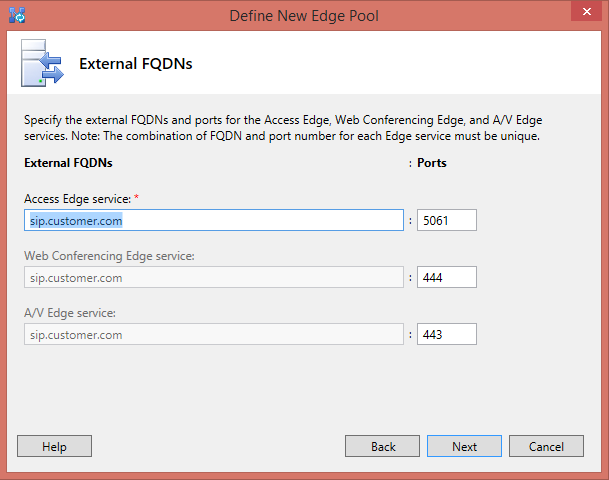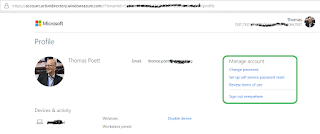Dialplan normalization with extension number if user do not have a DDI
If we only have internal extensions and the URI will look like this:
+4989123400;ext123
we have several point we need taking care about:
- incoming calls shall be addressed via Exchange Auto Attendant
- internal call now need to be normalized including the users extension
- in some circumstances, we have assigned multiple DID number including the head number. if so we need the incoming normalization, analog to the internal calling normalization
Confused finally?
Don't worry, it really looks simple:
Say our Head Number is: +4989123400 and we have extension from ;ext=01 until ext=99, the normalization rule will look like:
If the Exchange Auto Attendant has also an extension, we need to have an incoming normalization rule on the trunk or gateway:
Exchange AA: +4989123400;ext=99
Pattern to match: ^(\+4989123400)$
Translation rule: $1;ext=99
the internal assigned phone number has the said range (01-98), so a users phone number looks like:
a) tel:54;phone-context=SiteA
dialed number: 0154 (the 01 is the number plan area code)
Pattern to match: ^(\+4989123400)$
Translation rule: $1;phone-context=SiteA
b) tel:+4989123400;ext=54
Pattern to match: ^(\+4989123400)$
Translation rule: +4989123400;ext=$1
Author: Thomas Pött Managing Consultant Microsoft UC
+4989123400;ext123
we have several point we need taking care about:
- incoming calls shall be addressed via Exchange Auto Attendant
- internal call now need to be normalized including the users extension
- in some circumstances, we have assigned multiple DID number including the head number. if so we need the incoming normalization, analog to the internal calling normalization
Confused finally?
Don't worry, it really looks simple:
Say our Head Number is: +4989123400 and we have extension from ;ext=01 until ext=99, the normalization rule will look like:
If the Exchange Auto Attendant has also an extension, we need to have an incoming normalization rule on the trunk or gateway:
Exchange AA: +4989123400;ext=99
Pattern to match: ^(\+4989123400)$
Translation rule: $1;ext=99
the internal assigned phone number has the said range (01-98), so a users phone number looks like:
a) tel:54;phone-context=SiteA
dialed number: 0154 (the 01 is the number plan area code)
Pattern to match: ^(\+4989123400)$
Translation rule: $1;phone-context=SiteA
b) tel:+4989123400;ext=54
Pattern to match: ^(\+4989123400)$
Translation rule: +4989123400;ext=$1
Author: Thomas Pött Managing Consultant Microsoft UC



Hi dear,
ReplyDeleteHow about if all user of environment has a DID, I would like to know if I need worry about Ext?
Exemple:
SITE A:
User with a DID:
tel:+552133339999;Ext=53219999
tel:+552133339998;Ext=53219998